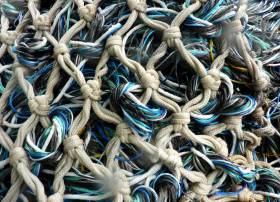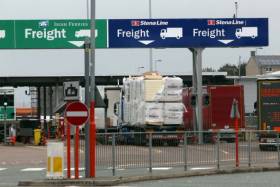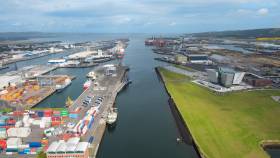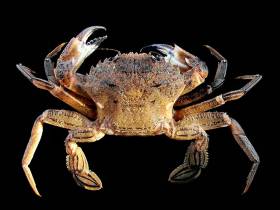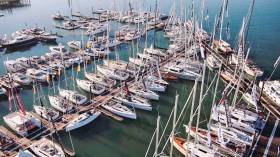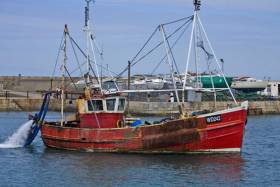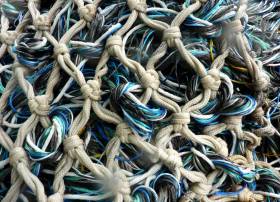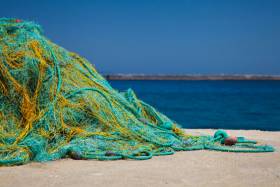Displaying items by tag: Brexit
Dutch Want Certainty For Post-Brexit Fishing Policy
#Fishing - The Netherlands has demanded certainty for Europe’s fishing industry after the UK’s withdrawal from the Common Fisheries Policy, as The Guardian reports.
Dutch fisheries minister Carola Schouten called on UK environment secretary Michael Gove to provide a formal proposal for arrangements between the British and European fishing communities post Brexit.
Gove and UK fisheries minister George Eustace have been critical of the CFP quota system but the UK has yet to put forward an alternative, Schouten argues.
Lough Foyle on Ireland’s North Coast is one of many outstanding issues that need to be resolved upon Britain’s exit from the EU and its policies, as Tom MacSweeney mused earlier this month.
“It is one sea, we have to share it,” she said. “I think it is proven that the [quota] system works.”
A promised white paper on the UK’s fisheries failed to appear before the end of 2017, prompting criticism from Scotland’s fishing community in particular.
The Guardian has more on the story HERE.
Exporters from Ireland 'to Keep UK Land-Bridge after Brexit'
#ExportersBrexit - Exporters from Ireland that go through Britain to get their produce to mainland Europe or further afield should still be able to do so after Brexit, the Revenue Commissioners expect, writes The Independent.ie
Michael Colgan, head of Revenue's Brexit Unit, said it is the body's "working assumption" that the UK land bridge for firms would still be available.
Two-thirds of exporters go through Britain, and expectations of continued use of the land bridge will come as a huge relief.
Currently, the common transit procedure of the EU is used for the movement of goods between the 28 EU member states, the EFTA countries, Turkey, the former Yugoslav Republic of Macedonia and Serbia.
The rules are effectively identical to those of the Union transit.
According to the European Commission, these are used for customs transit operations between member states and are applicable to the movement of non-Union goods for which customs duties and other charges at import are at stake, and of Union goods, which, between their point of departure and point of destination in the EU, have to pass through the territory of a third country.
To read more click the link here.
Brexit: DUP Silent On '72 Per Cent' Trade Claim Out of Belfast Harbour
#DUPtradefigures - The Democratic Ulster Party (DUP) has been unable to substantiate its "72 per cent" statistic in relation to trade between Northern Ireland and Britain.
As The Irish News writes, for months the party has been using the figure to support its arguments against calls for an Irish Sea border post-Brexit.
DUP leader Arlene Foster has said "72 per cent of trade from Belfast Harbour is with Great Britain", while deputy leader Nigel Dodds has said Britain "is the primary marketplace for local produce, accounting for over 72 per cent of trade flows".
However, when asked to explain the exact meaning of the figure and provide its source, the party did not respond.
It has also emerged that official government statistics differ significantly from numbers used by Conservative MP Owen Paterson in his claims that trade between the UK and Republic is "really quite small".
The former secretary of state, an adviser to the Leave Means Leave campaign group, told BBC Radio 4's Today programme: "It's five per cent of Northern Ireland exports. It's 1.6 per cent of the Republic of Ireland's exports."
According to Northern Ireland Statistics and Research Agency (Nisra) figures, sales to the Republic actually account for 16 per cent of Northern Ireland's external sales.
Sales to Britain make up 58 per cent, according to the statistics for 2015 which include services and tourism. The rest of the EU is nine per cent, and 17 per cent for sales to the rest of the world.
It appears Mr Paterson's five per cent figure actually represents sales to the Republic as a proportion of Northern Ireland's overall internal and external sales activity.
Although it has been used in different ways, the DUP's figure appears to only relate to trade directly through Belfast Harbour, rather than the north's overall external sales or exports.
When asked about the claim, Belfast Harbour declined to give a formal response.
For more on the story, click the newspaper's report here.
Marine Minister Introduces Conservation Measures Proposed By National Inshore Fisheries Forum
#Fishing - Marine Minister Michael Creed signed into law conservation measures concerning Irish velvet crab stocks as he hosted the 12th meeting of the National Inshore Fisheries Forum (NIFF) today, Wednesday 27 September.
The Inshore Fisheries Forum structures, which include the NIFF and six Regional Inshore Fisheries Forums (RIFFs), were established in 2014 to foster stakeholder-led development of proposals for the inshore fishing sector.
As well as moved to protect Irish velvet crab, the minister also introduced measures to regulate fishing activities affecting Natura 2000 sites at Hook Head and the Saltee Islands.
Regulations signed by Minister Creed today will introduce a Minimum Conservation Reference Size (MCRS) of 65mm for velvet crab that will apply to Irish sea fishing boats from 1 January 2018.
This measure was initially developed by the West Regional Inshore Fisheries Forum (RIFF) with advice from the Marine Institute. The proposal was brought to the minister last year by the NIFF, and a public consultation on the measure was held at the end of 2016.
Velvet crab are fished all year, but mainly in the March to October period, and they are predominantly a by-catch in the lobster fishery. Landings of velvet crab into Ireland were 406 tonnes in 2015, higher than any year since 2004, and were valued at just under €808,000. Over 80% of velvet crabs are landed by vessels less than 10 metres in length.
Additionally, a Fisheries Natura Declaration signed by Minister Creed today will restrict fishing using dredge and trawling gear for scallop fishing to protect certain sensitive habitats in Natura 2000 conservation sites off the southeast coast of Wexford from 30 November.
The Natura 2000 sites include the Hook Head and Saltee Islands SACs (Special Areas of Conservation). The declaration also sets down monitoring and notification requirements for boats fishing using dredge and trawling gear within these habitats.
These gear and monitoring measures were developed through industry members working with the Marine Institute and Bord Iascaigh Mhara (BIM) to address risks to sensitive habitats in the Hook Head and Saltee Islands SACs. The risks were identified by the Marine Institute in a 2014 risk assessment report of sea-fishing activities in Natura 2000 sites in the Irish Sea.
Industry members – including individual scallop fishermen, members of the Southeast RIFF and representatives of the Irish South and East Fish Producers Organisation (ISEFPO) – met with the Marine Institute and BIM through 2015 and 2016 to develop risk mitigation proposals for the fishery. A public consultation on the resulting Mitigation Response Plan was carried out in 2016.
These measures are being introduced following full consultation with the Inshore Fisheries Forum structures.
“Heading into their third year, the forums have taken a lead in tackling conservation issues and changing practices with a view to long-term sustainability,” said Minister Creed. “I welcome the support these measures have received from the Forums which reflects the mature approach this sector is taking in dealing with its own challenges.”
Minister Creed and the NIFF discussed the implementation of the new measures and the status of other measures under review for important stocks such as lobster, brown crab and razor clams.
The minister also discussed the impact of Brexit on the fishing sector and the UK’s intention to withdraw from the London Fisheries Convention, which governs access to waters inside the 12-mile limit.
Commenting on issues arising for the sector from Brexit, Minister Creed noted: “While the implications of Brexit are far from clear at this point in time, I will continue to highlight Irish fisheries concerns on the EU agenda and work with other impacted EU member states and the Barnier team to ensure that fisheries are not isolated in the overall negotiations on a new EU/UK relationship.”
Majority of Irish Exporters tied to UK Trade ‘Need Brexit Help’
#ports&shipping -A majority of Irish exporters, more than 9 out of 10 trading with the UK writes The Irish Examiner need some sort of help in next months budget to cushion the effects of Brexit, according to the Irish Exporters’ Association.
Calling for “strategic” investments in infrastructure, its survey said exporters based in rural areas complained that poor quality broadband and roads were hampering their efforts to do business.
Capital investments would help both Irish-owned firms and boost levels of foreign direct investment (FDI), said the association, which also wants the Government to provide compensation for firms struggling to deal with the slump in the value of sterling since Britain voted last year to leave the EU.
FDI levels would likely also be hit by housing shortages and skills shortages, according to the survey.
For more the newspaper has a report here.
The Question Of Brexit For Britain’s Marine Industry
#Brexit - What will Brexit mean for Britain’s marine industry?
That’s the question that was posed by MoneyWeek to leading figures in the sector on the eve of the Southampton Boat Show, which continues this week.
There is broad agreement that the weaker pound has been beneficial, especially against the dollar for boat sales to the US – a much bigger market for some boat builders than closer to home.
Britain’s marine leisure sector has also experienced a boost from overseas visitors and a growth in domestic tourism, to match the return of confidence to the boat sales market.
Employment is another matter, as around a fifth of the industry is currently staffed by EU citizens from outside of the UK.
Policy and trade are also a concern, as Brexit means the UK would no longer have a direct influence over EU directives pertaining to regulation of the marine industry.
MoneyWeek has much more on the story HERE.
#Fishing - Ireland’s fishing sector experienced a “challenging” 2016 on a number of fronts, as outlined in the Department of Agriculture, Food and the Marine’s latest annual review and outlook for the coming year.
Ongoing trade issues in Russia and West Africa have “significantly impacted demand” for pelagic fish caught by the Irish fleet which also faces increased competition from the Faroe Islands and Iceland, particularly for mackerel.
Decreased in the boarfish and mackerel quota have been cited as the main reason’s for the decline in Ireland’s pelagic exports, while the increased cost of processing the likes of herring and mackerel — not to mention loss of returns for those selling to the UK as sterling falls — is having a knock-on effect on competitiveness.
There’s a better story in the whitefish sector, where exports increase by over 10% in value terms last year, driven by an increase in volume.
Shellfish, too, is a growth market with a 12% rise in average unit prices, and trade to Italy, Spain and Japan rising behind Ireland’s main export destination France. China is another important market, with strong growth shown despite a bar on live crab imports for most of 2016.
Export performance in 2017 “will continue to depend on product supply”, the report states, noting that quota receptions for pelagic fish will make market development work in that sector “difficult” in the remaining months of 2017.
The industry also faces the uncertainty of political and economic factors such as Brexit, with over a third of landings across all sectors taken from within UK waters.
“While some benefits may accrue in terms of increasing market share in EU Member States, overall these will be more than offset by three main threats: loss of access, substantial loss of quota share and displacement into our zone, as well as a high level of uncertainty in the short term.”
The report adds that Ireland “needs to ensure that Irish and EU fisheries concerns are high on the EU agenda and that fisheries are not isolated in the overall negotiations on a new EU/UK relationship.”
Britain’s Withdrawal From Fisheries Convention Could Be ‘Catastrophic’ For Irish Fleet
#Brexit - Britain’s withdrawal from the London Fisheries Convention could be “catastrophic” for the Irish fishing fleet — with fishermen in Northern Ireland being the “big losers” in the end.
That’s the stark warning from fisheries organisations noted in Independent.ie’s rundown of ‘the five things you need to know as the UK backs out of the EU fishing deal’.
As previously reported on Afloat.ie, Irish trawlers could soon face a ban from fishing within 12 nautical miles of the UK as ministers in Westminster prepare to trigger Britain’s withdrawal from the 53-year-old London Fisheries Convention.
The agreement, which grants fishing rights to European countries — including Ireland — that have traditionally fished in British waters for centuries, was incorporated into the Common Fisheries Policy more than 30 years ago.
However, Brexit means the UK’s exit from the CFP and an intention to reassert control over its fishing waters.
The affect for Ireland could be the wiping out of the Irish fishing industry, fears Patrick Murphy of the Irish South and West Fish Producers Organisation (IS&WFPO), who explains that as much as 50% of the Irish catch comes from English waters.
And Northern Irish fishermen would be “big losers” after such a move, says Francis O'Donnell of the Irish Fish Producers Organisation (IFPO) — with no specifics on how common fishing grounds such as Lough Foyle and Carlingford Lough would be handled.
Meanwhile, UK Environment Secretary Michael Gove claims that leaving the convention would give Britain the power to build a new domestic fishing policy “which leads to a more competitive, profitable and sustainable industry”.
But the WWF warns that making its own decisions is not enough for Britain to support its fishing industry.
“Achieving sustainable fishing is about a lot more than which country fishes where,” said the environmental NGO’s Ben Stafford, who added: “We will still need to co-operate with our neighbours, as fish do not recognise lines on a map.”
Independent.ie has much more on the story HERE.
Irish Fleet Could Face UK Ban With Britain’s Withdrawal From Longstanding Fisheries Agreement
#Fishing - Irish trawlers could soon be banned from fishing within 12 nautical miles of the UK after its exit from an agreement to share its waters with other European maritime countries.
According to The Irish Times, Britain announced at the weekend that it would trigger its withdrawal from the 53-year-old London Fisheries Convention as part of Brexit.
The convention was signed in 1964 with France, Belgium, Germany, the Netherlands and Ireland to allow fishing in waters that have been traditionally shared for centuries.
Rights granted by the convention were incorporated into the European Union’s Common Fisheries Policy in 1983.
But as negotiations for Britain’s withdrawal from the EU begin, the UK has also triggered its exit from the longstanding convention — a move described by Irish Marine Minister Michael Creed as “unwelcome and unhelpful”.
The Irish fleet sources the majority of its mackerel catch and most of its prawns from UK waters, the minister added.
Irish fishing industry organisations, meanwhile, have branded the decision as Britain’s “first serious shot on Brexit”.
Both the Irish South and West Fish Producers Organisation (IS&WFPO) and Killybegs Fishermen’s Organisation (KFO) say the move is proof the that UK is seeking a ‘hard’ Brexit when it comes to fishing rights, as The Irish Times reports.
The news comes just days after Minister Creed said there was ‘strength in unity’ when it comes to pending Brexit fisheries negotiations.
#Fishing - Marine Minister Michael Creed yesterday (Thursday 29 June) hosted a Brexit fisheries discussion in Galway as part of four days of marine-themed events, including the BIM National Seafood Conference and SeaFest, Ireland’s national maritime festival, which kicks off today.
Minister Creed delivered the discussion’s opening address, which was followed by presentations by key European fisheries industry leaders Niels Wichmann, chair of the North Sea Advisory Council and Emiel Brouckaert, chair of the North Western Waters Advisory Councils.
There was also a panel discussion focusing on the potential issues arising from Brexit for the seafood sector. This panel comprised Wichmann and Brouckaert along with representatives of the Irish fishing industry: Sean O’Donoghue of the KFO, Patrick Murphy of the IS&WFPO, Hugo Boyle of the ISEFPO and Lorcán Ó Cinnéide of the IFPEA.
“The BIM National Seafood Conference and SeaFest are about celebrating our marine resources and all the opportunities that they provide to us,” said Minister Creed. “As part of that awareness, we must now also consider what potential impacts Brexit will have on our sea fisheries industry. Today’s discussion was another highly valuable opportunity to engage with our fisheries stakeholders.”
The minister went on to say that the day’s discussions “highlighted the very real concerns of the fishing industry regarding the potential effects of Brexit. I am very grateful to our presenters and panel members who have provided complex information in a very clear way.”
In his opening address, Minister Creed spoke of the two key objectives: the maintenance of existing quota shares, and existing rights of access.
“Any attempts to restrict our existing rights and entitlements will be strenuously resisted and that is why I will be insisting that fisheries must form part of the wider trade negotiations,” he said.
The minister also spoke of his discussion with the EU chief negotiator Michel Barnierwho, who “clearly understands the issues and significance of Brexit for Ireland’s fisheries sector.”
Minister Creed emphasised that “it is vital that we all work together … For ministers to be effective, so that heads of state and government and Mr Barnier’s team understand and prioritise fisheries, it will be essential that we have a united fishing industry, both nationally and at European level.”
Minister Creed concluded with the seanfhocal “Ní neart go chur le chéile” – there is strength in unity.



























